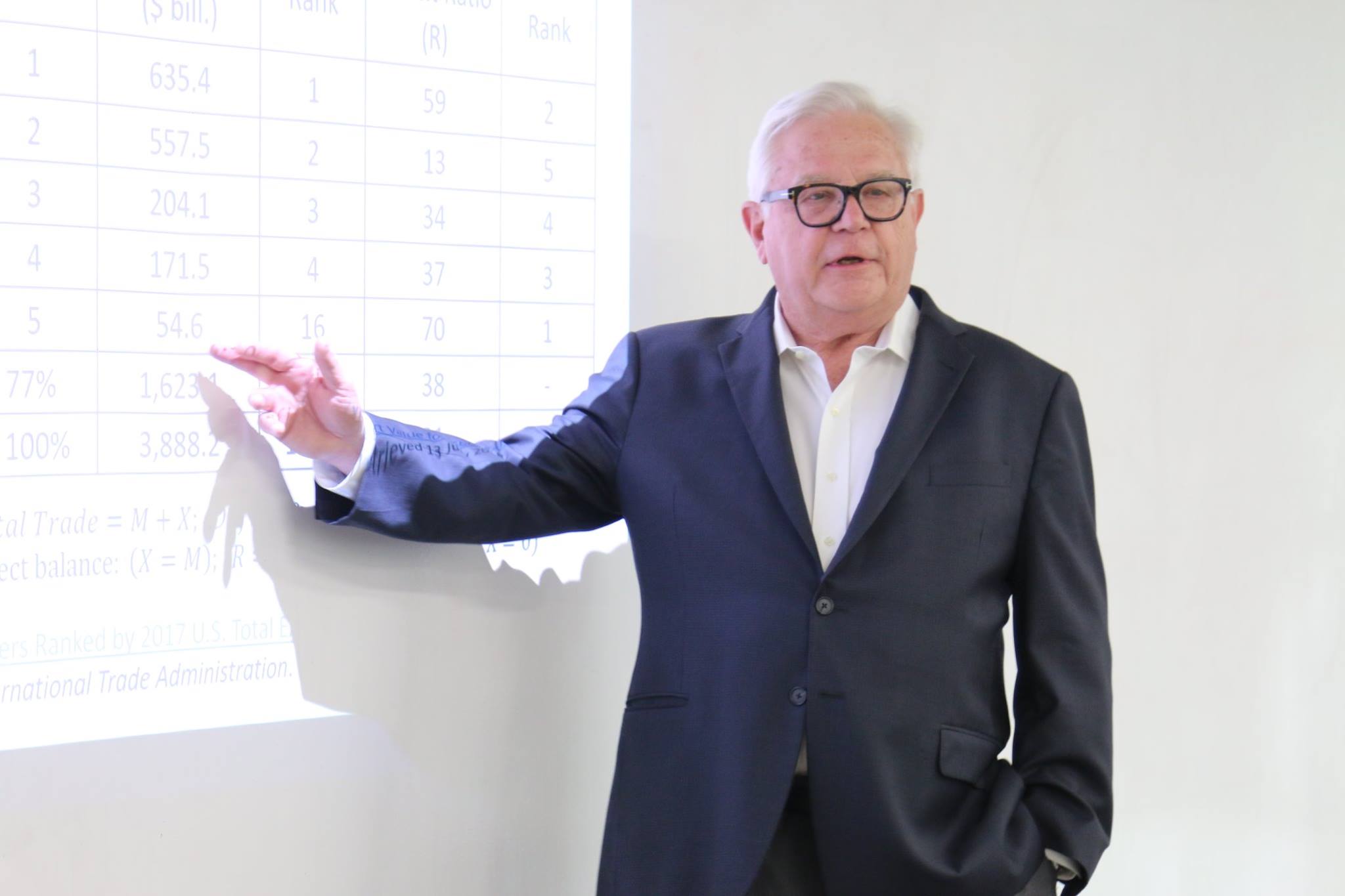
On 30 November 2018, Fulbright School of Public Policy and Management hosted a seminar on “Understanding US and Global trade imbalances.” Dr. James Riedel of Johns Hopkins University presented.

Dr. Riedel explained causes of U.S.-China trade conflict under macroeconomics and trade deficits perspective. He argued that trade deficits do not necessarily harm U.S. economy. Imposing heavy tariffs will not significantly reduce U.S. trade deficits. On the contrary, protectionism may result in undesirable outcomes such as higher unemployment rate, reduced consumer benefits, etc.

Subsequently, Dr. Riedel described U.S.-China trade relationships and capital flows among the two countries. To secure competitiveness of a low currency on exporting market, China initiated “Sterilization Policy.” The success of this policy, in the short term, allows China to control its foreign exchange rates and capital inflows. Excess foreign reserves in China public sectors flow to U.S. to finance the country’s fiscal deficit.








